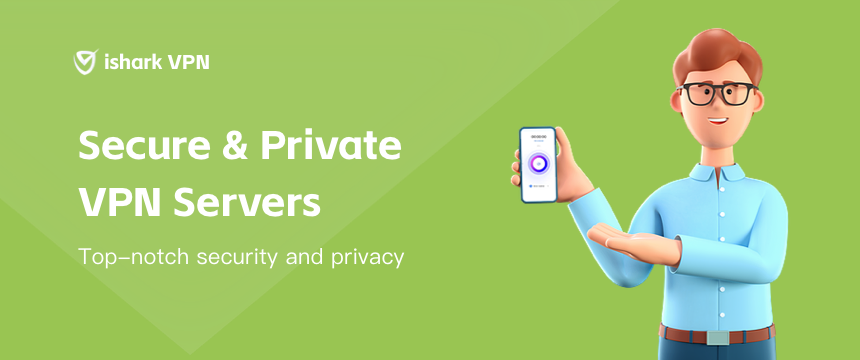Performance and Speed Issues with VPN
ishark blog article
While Virtual Private Networks (VPN) offer privacy protection and secure connections, they can sometimes face performance and speed issues.
The decrease in network connection speed can have a negative impact on user experience and work efficiency.
This article analyzes the impact of VPN on network connection speed, explores performance differences among different VPN protocols and service providers, and investigates how to optimize VPN configurations to enhance speed and performance.

Impact of VPN on Network Connection Speed:
Data Encryption and Decryption: VPN uses encryption techniques to secure data transmission, which may introduce some latency. The computational resources and time required for encryption and decryption can affect network connection speed.
Server Distance and Network Congestion: VPN connections to remote servers may encounter latency issues, especially when servers are far away or networks are congested. These factors can influence connection speed.
Choice of VPN Protocol: Different VPN protocols may have performance differences. Some protocols may offer faster connection speeds, while others prioritize security at the expense of speed.
Performance Differences among VPN Protocols and Service Providers:
PPTP Protocol: PPTP is an older VPN protocol known for its faster connection speeds but relatively lower security. It is suitable for scenarios that prioritize speed over security.
L2TP/IPSec Protocol: L2TP/IPSec provides higher security but is relatively slower. It is suitable for scenarios where security is paramount, with speed being a secondary consideration.
OpenVPN Protocol: OpenVPN is an open-source VPN protocol that offers good security and faster speeds. It can run on multiple platforms and can be optimized through configuration adjustments to enhance performance.
Performance Variations among Service Providers: Different VPN service providers may have varying infrastructure and server configurations, which can affect performance. Choosing a reliable service provider and connecting to nearby servers can improve connection speed and stability.
Optimizing VPN Configurations for Speed and Performance:
Choosing the Right Protocol: Depending on specific needs, strike a balance between speed and security when selecting a VPN protocol.
Connecting to Nearby Servers: Choose servers physically closer to your location to reduce data transmission latency.
Optimizing Network Settings: Ensure a stable network connection, avoiding network congestion and limitations that could affect connection speed.
Adjusting Encryption Levels: Fine-tune encryption levels based on actual requirements to balance security and speed considerations.
Utilizing Compression and Caching Techniques: Some VPN service providers employ data compression and caching techniques to reduce data transmission volume and improve connection speed.
Updating VPN Clients and Service Providers: Regularly update VPN client software and service provider versions to access the latest performance optimizations and security enhancements.

Optimizing VPN Configurations for Speed and Performance:
To improve VPN speed and performance, consider the following optimization methods:
Using Dedicated Servers: Some VPN service providers offer dedicated servers for streaming and P2P downloads. Connecting to these dedicated servers can result in faster speeds and more stable connections.
Adjusting Encryption Algorithms and Key Lengths: Higher-level encryption algorithms and longer key lengths may impact VPN connection speed. Consider selecting lower encryption levels to strike a balance between speed and security.
Removing Unnecessary Protocols and Features: Certain VPN protocols and features can introduce connection delays. Consider removing unnecessary features to improve connection speed, but be mindful that removing too many features may compromise security.
Utilizing Distributed Servers: Some VPN service providers employ a distributed server architecture to distribute load across multiple servers. This reduces the load on individual servers and improves overall connection speed and performance.
Testing and Selecting Optimal Servers: Utilize server testing tools provided by VPN service providers to measure latency and speed across different servers. Based on the test results, select the best servers for improved connection performance.
Avoiding Simultaneous Connection of Multiple Devices: Connecting multiple devices simultaneously can impact VPN connection speed and performance. If possible, limit the number of concurrently connected devices to enhance the connection speed of each device.
Updating VPN Clients and Firmware: Regularly update VPN client software and router firmware to access the latest performance optimizations and security enhancements. These updates often include patches to address performance issues and vulnerabilities.
By implementing the above optimization methods, VPN speed and performance can be improved, ensuring a smoother network connection experience.
Conclusion:
VPN may have an impact on network connection speed while providing secure connections.
Understanding the factors influencing VPN impact on network connection speed, selecting appropriate protocols and service providers, and making necessary optimizations and adjustments can enhance VPN speed and performance, providing a better user experience.









